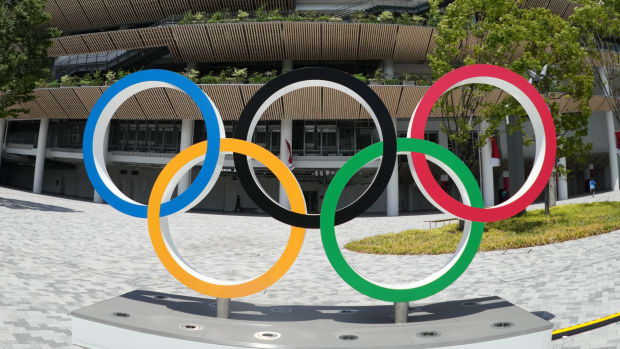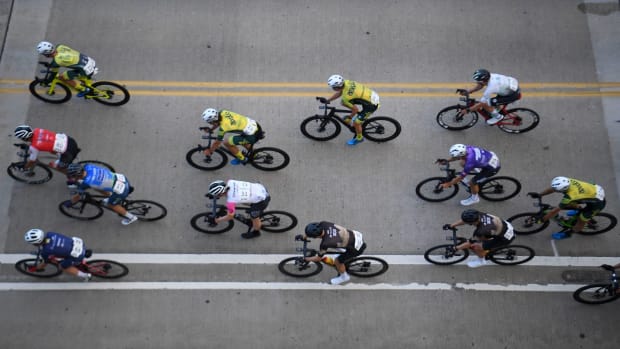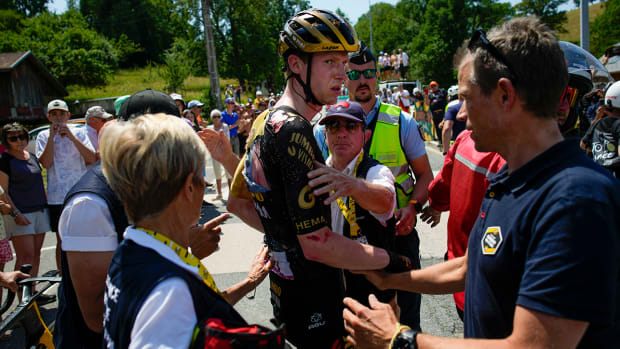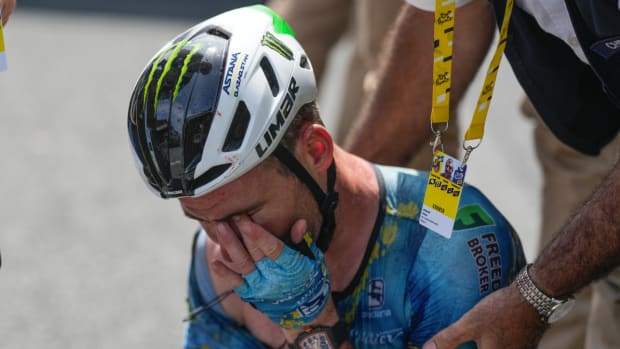Black History Month: Marshall ‘Major’ Taylor Made History as the World's Fastest Cyclist
Marshall "Major" Taylor repeatedly demonstrated that he was the world's fastest cyclist, but it was by winning the prestigious World Championships in 1899 and 1900 that he really proved his doubters wrong. After that triumph, even his competitors—many prejudiced, many who colluded against him during races—had to concede that he was the best in the world.
In 1960, Sports Illustrated said that his era was the peak of American cycling—in large part due to Taylor:
Professional bicycle racing was at its peak in the United States when Marshall Walter (Major) Taylor, one of eight children of a Negro Civil War veteran, won the 1899 world championship and the U.S. title a year later. Newspapers hailed this remarkable young sprinter (he was 21 years old when he became world champion) as the "Fastest Bicycle Rider in the World." Taylor, one of the earliest of his race to become a national champion in any sport, then spent the next four years touring Europe and Australia. He rode wherever bicycle racing was a major sport and beat every national champion he met.
In 1896, when Taylor was 18, he won the the Six Day Bicycle Race at Madison Square Garden by riding a record 1,732 miles on a track. It was his first professional race. He was also the only African-American competitor.
During his career, Taylor would face harassment from fellow bikers, who would consistently trip, injure or otherwise detail him in order to ensure that he did not take gold. But, he was still the fastest cyclist in the world for more than a decade.
Taylor was beloved in Europe, namely in France, where cycling is a national sport and where he routinely beat the country's best cyclist in head-to-head races.
However, he still received harsh racism in the United States, notably in the South, where local promoters would bar him from racing white riders or would railroad him by giving him poor treatment.
More From Biography.com
• Florence Griffith Joyner
• Jackie Joyner-Kersee
• Wilma Rudolph
• Althea Gibson
Regardless, he overcame those obstacles, beating his opponents despite the impediments blocking him. And he beat them all over the world. No matter the competitor—no matter the country—no one was a match for Major Taylor.
That same Sports Illustrated piece from 1960:
France had her "invincible" Jacquelin and later Poulain, Denmark her Ellegaard, Holland her Meyers, Belgium her Grognia, England her Jenkins, Switzerland her Gougoltz, Germany her Arend; but they all fell before the terrific jump of the boy from Indianapolis. In many races, it seemed impossible for him to get up in time, yet he would come through in the last few yards. He reveled in hairline finishes, which was one of the reasons for his great popularity with fans. His American and European triumphs were repeated in Australia, where he defeated one of the world's greatest racers, Don Walker.
From the SI Vault:
"The Fastest Man On Wheels," by Arthur Palmer (Mar. 14, 1960)




